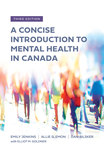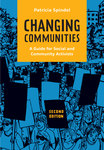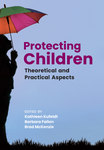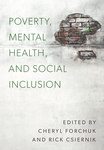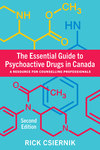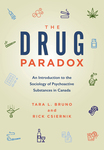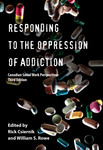We don’t actively support Internet Explorer
It appears that you are using Internet Explorer, which has been discontinued by Microsoft. Support has ended for versions older than 11, and as a result you may face security issues and other problems when using it.
We recommend upgrading to a newer browser such as Firefox, Google Chrome, or Edge for a much better experience across the web.
While this site may work with Explorer, we are not testing and verifying it, so you may run into some trouble or strange looking things.
Overview
The revised third edition of the formerly titled Substance Use and Abuse retains its comprehensive, holistic examination of the field of substance use and misuse from a Canadian perspective. Now organized into seven sections, the 30 chapters examine the nature of addiction; explore biological, psychological, and social theories that attempt to explain addiction; discuss drugs that produce addiction, along with a review of prevention, treatment, and treatment system options; and consider the legal and ethical issues that those working in substance use and addiction frequently encounter. Thoroughly updated to reflect contemporary issues and recent advances in the field of addiction counselling, Rick Csiernik’s much-loved text features new content on the changes to cannabis law and culture in Canada, the opioid crisis and public response, as well as expanded content on cultural competence, non-substance use addictive behaviours, motivational interviewing, and relapse prevention.
Substance Use and Misuse is an essential and timely resource for counsellors treating individuals dealing with addiction, and for courses across social work, human services counselling, psychology, and mental health and addictions programs.
FEATURES
- now divided into seven sections with 30 chapters to enhance student comprehension and learning
- contains new information on contemporary themes including the opioid crisis, e-cigarettes and vaping, risks and benefits of THC and CBD, principles of good family skills training, sample dialectical behavioural therapy (DBT) activities, and a sample intervention script
- includes an enhanced treatment section with updates on harm reduction, trauma-informed care, the transtheoretical model of change, and motivational interviewing
Table of Contents
List of Tables, Figures, and Boxes
Preface
Acknowledgements
Section I: Fundamental Concepts
Chapter 1: Conceptualizing Addiction
Chapter 2: Pharmacological Foundations
Chapter 3: Drug Use and Its Economic Implications
Section I Closing Thoughts and Activities
Section II: Theories on Addiction
Chapter 4: The Moral Model
Chapter 5: Biological Theories
Chapter 6: Psychological Theories
Chapter 7: Sociological Theories
Section II Closing Thoughts and Activities
Section III: Psychoactive Drugs
Chapter 8: Depressants
Chapter 9: Opioids
Chapter 10: Stimulants
Chapter 11: Hallucinogens
Chapter 12: Psychotherapeutic Drugs
Section III Closing Thoughts and Activities
Section IV: Prevention
Chapter 13: An Overview of Prevention Programming
Chapter 14: What Works and What Doesn’t
Chapter 15: Family Programming
Section IV Closing Thoughts and Activities
Section V: Treatment Options
Chapter 16: Pharmacological Therapies (Pharmacotherapy)
Chapter 17: Individual Counselling Approaches
Chapter 18: Confrontation and Intervention
Chapter 19: Working with More than One: Families and Groups
Chapter 20: Behavioural Approaches
Chapter 21: Harm Reduction
Chapter 22: The Foundations of Contemporary Addiction Counselling: The Transtheoretical Model of Change and Motivational Interviewing
Chapter 23: Trauma-Informed Practice
Chapter 24: Mutual Aid/Self-Help
Section V Closing Thoughts and Activities
Section VI: Treatment Resources
Chapter 25: Entry into the Addiction Continuum of Care
Chapter 26: Addiction-Specific Resources
Chapter 27: Adjunct Resources
Section VI Closing Thoughts and Activities
Section VII: Becoming a Competent Addiction Counsellor
Chapter 28: Psychoactive Drugs and the Law
Chapter 29: Ethical Considerations
Chapter 30: Practice Considerations: Addiction Counsellor Competencies
Section VII Closing Thoughts and Activities
References
Copyright Acknowledgements
Index


